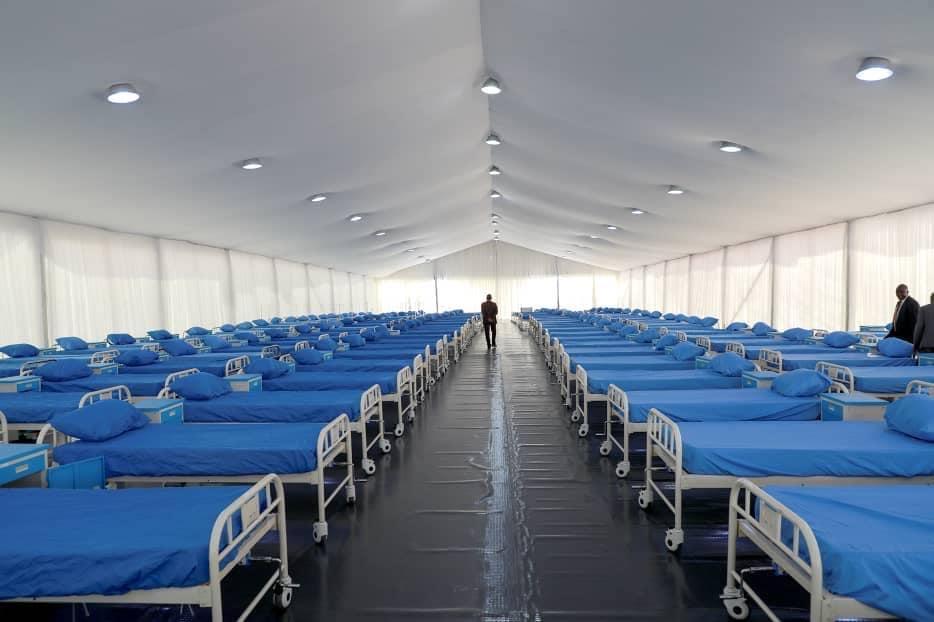Since February 27, when Nigeria recorded its first case of the novel Corona Virus in Lagos, the country’s most populous State Kano was largely insulated from fears of an outbreak. This meant the State had ample time to prepare its response as the virus began its spread to 20 states in the federation. According to the National Population Census of 2006, Kano has a population of 9,401,288 people. Recent conservative projections estimate the population of the state to be around 13 million people. Given the diversity of its population, and its strategic position of the state as the centre of commerce in North, experts had pointed out that it was only a matter of time before Kano state would record its COVID-19 index case. Despite the restriction of movement, the directives on social distancing and the ban on inter-state travel by the administration of Governor Abdullahi Umar Ganduje, the reluctance of citizens to comply, and weak enforcement of restriction by the government may have contributed to the state recording its first case on April 11.

As of April 14, Kano State now has three confirmed COVID-19 infections, and the question on the minds of residents is about how ready the state is to speedily contain, and snuff out the outbreak. Initial reports indicated that the only isolation centre in the state, which was set up in 2014 to contain the outbreak of Ebola disease, was in a sorry state, and could not reasonably support COVID-19 containment efforts. Located at Yar Gaya village in Dawakin Kudu Local Government Area, the 32-bed isolation centre was not only an eyesore, it was bereft of required equipment to fight COVID-19. However, in what appears to be a reaction to the reports, the state government quickly moved to designate the main isolation centre as the Diagnosis Center and Center for Disease Control, Kwanar Dawaki.
Investigation revealed that the Kwanar Dawaki health facility, which was turned to the Yusuf Maitama Sule University Teaching Hospital, had already been equipped by the Pfizer as part of compensation to the state government over the tragic vaccine testing that affected many children in the state. On a visit to the center, our reporter observed that there are 72 beds spread around 18 rooms with 17 standing ventilators. The facility also has one Intensive Care Unit (ICU), which has been equipped with 7 beds each connected with a standing ventilator.

The donation of a 500-bed capacity isolation hospital, by business magnate and Africa’s richest man, Aliko Dangote raised the isolation bed capacity of the state to 578. At the Dangote isolation center, situated at Sani Abacha Stadium, Kofar Mata in the Kano metropolis, our reporter observed that most of the equipment have been provided but the 509 capacity facility has with only one standing ventilator. An official at the Kwanar Dawaki isolation center, who pleaded anonymity because he was not authorized to speak on the issue, explained that the state government has adopted the strategy of dividing the isolation centers into three categories. The one at Kwanar Dawaki, according to him, would serve at the center for treatment of severe cases, while the 509-bed donated by Dangote would take care of mild cases.
The source added complicated cases, especially those with pre-existing conditions like diabetes or renal problems would be treated at Aminu Kano Teaching Hospital and Murtala Muhammad Specialist Hospital.
Subsequently, the key question about the availability of ventilators to cater for severe cases is one which has been asked by close observers of Kano State’s response readiness. According to Salihu Tanko Yakasai, Special Adviser on Media to the Kano State Governor, the total number of ventilators in the entire state is 55. He said: “There are 27 ventilators at Kwanar Dawaki Isolation centre, Murtala Mohammed Specialist Hospital has six. Muhammadu Buhari Hospital in Giginyu has six, while Abdullahi Wase specialist hospital has four ventilators. Aminu Kano Teaching hospital has six ventilators while Khalifa Isiaku Rabiu Pediatrics Hospital located in Zoo road has six ventilators.” A close scrutiny of the number of ventilators would show that for an entire state of over 13 million people facing a pandemic with the capacity to spread like COVID-19, only 55 ventilators, 578 isolation beds are available. Some experts reckon that id there was to be a spike of up to just 100 severe cases needing ventilators, the implication is that the medical personnel will have to select those to die or those to live.
However, the state Commissioner of Health, Dr Aminu Ibrahim Tsanyawa, told our reporter that there are 10 portable ventilators also attached to the Kwanar Dawaki isolation center with an effort to add more in order to cater for the population of Kano state. The Commissioner however did not provide information on the time frame for the additional ventilators to be provided. He said: “The reason for providing few number of ventilators at the 500-bed Kofar Mata isolation center is that the center is set up for mild cases, but that will not discourage us from using the ventilator if the case deteriorates,” he said.
Apart from the preparation on the side of the government, there have also been concerns about the readiness of the civil populace to do their part to contain the spread of COVID-19 in Kano State. On April 10 for instance, a frontline civil society organization, the Resource Centre for Human Rights&Civic Education (CHRICED) raised an alarm in an open letter to Governor Ganduje about the nonchalance of Kano citizens to directives on social distancing, and to discourage large gatherings. The group said from its observations, large social gatherings including weddings, naming ceremonies, and congregational prayers have continued with active participation of some officials of the State government.
It said: “Also, across many play grounds, youths continue to engage in daily games of football, even though the rest of the world has put a stop to sporting activities due to the ravages caused by this COVID-19 pandemic. The transport services, particularly the tricycle (Keke) riders continue to violate the social distance order by overloading passengers.”
The group in the letter signed by Executive Director, Comrade Dr. Ibrahim M. Zikirullahi warned that the trends portend very serious implications for public health and safety in Kano State. It said as the most populous state in Nigeria, which could have a higher COVID-19 burden to cope with there is a need for the government to effectively enforce directives banning large gatherings. Meanwhile, in the area of palliatives, the 41-member Fund Raising Committee, which was set up to mobilise funds to fight the pandemic is talking of reaching out to the poorest of the poor the state. The Committee, chaired by Professor Yahuza Bello, Vice Chancellor of Bayero University Kano (BUK), has raised the sum of N375, 417,585.50 so far. It is working out modalities to distribute 300,000 vulnerable people across the state in order to cushion the effect of the lockdown. The committee, according to an internal report has indicated its resolve to “transparently and judiciously” distribute relief items and share the money to those who need them the most. Part of its strategy according to sources is to go down to the ward level, and do the distribution in collaboration to ward heads and Hisbah divisions. This strategy, the Committee reckons will provide the genuine data of the beneficiaries for the distribution of the relief cash and items.
This COVID-19 Accountability Report is produced through collaboration between The Explainer and Platinum Post with support from CHRICED, and Misereor KZE of Germany.























